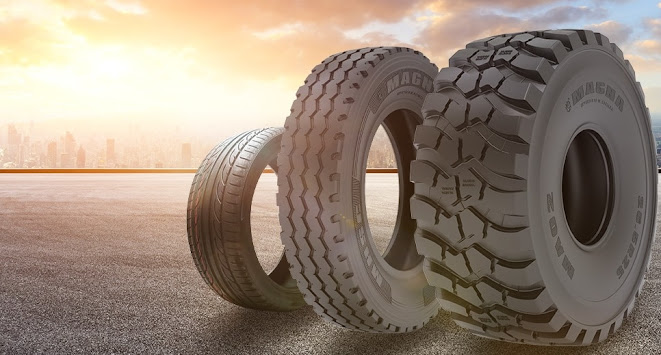The demand for truck and bus radial tyres has been increasing rapidly in Bangladesh, but there is little domestic production in this segment to meet the rising demand.
The demand for tyres in Bangladesh has been increasing remarkably over a period of time due to the increase in number of vehicles both in commercial and personal space across the country. According to industry experts the demand for tyres has been increasing at an average rate of 9 per cent per annum due to the rising automobile sales, foreign investments and government support in the form of relatively lower import duties.
Though, it augurs well for local entrepreneurs in Bangladesh to grab the opportunity and ramp up their production, but the industry however has not risen up to the expectation and still remains largely dependent on imports. Currently Bangladesh imports tyres from countries like India, Japan, China, and Indonesia, as well as from a few European countries. The market size for automotive tyres in the country has now reached up to $58.90 million from $35.34 million in 2015, making it lucrative for both domestic and foreign players.
Lacks investment and raw materials for production
Currently, only four local companies are making light automotive tyres taking advantage of the surging market. The companies including Gazi Group, Meghna Group, Rupsha Tyre, Apex Husain and a few others are manufacturing tyres for light trucks, microbuses, minibuses, motorcycles, auto-rickshaws and easy bikes. CEAT, originally an Indian brand, has agreed to set up a manufacturing plant with an investment of $4.99 million in collaboration with A K Khan Limited, a local company recently.
The tyre manufacturing industry in Bangladesh is still lagging behind as the sector needs huge capital investments. The demand for tyre manufacturing in the country witnessed around 480,000 units annually in 2019 for heavy vehicles and private cars alone of which about 99 per cent met through imports only.
Moreover, scarcity of raw materials is another impediment for local tyre production in Bangladesh. But the situation may soon change as rubber, the main raw material used for making tyres, is currently setting a strong foothold in its production in the country. According to some reports, rubber production in the country has been growing at an average rate of 20.61 per cent per annum.
The tyre market in Bangladesh is dominated by the commercial vehicle tyre segment which takes about 80 per cent of the total demand for the product. Most of which however, is being met by non-branded Chinese tires which are often short of quality but low-cost.
Another large chunk of the Bangladesh tyre market is largely taken over by MRF Tyres, an Indian brand. There are however some private vehicles relying on more costly products like Yokohama, Dunlop and Maxxis offered by Japanese, Thai and US respectively. The Bangladesh tyre imports therefore exceed more than $11.78 million on importing more than 1.5 million tyres form different countries across the world.
Indian tyre exports on a roll
Post-Covid-pandemic exports from India increased in all segments of business and tyre exports too treading in the same growth path along with other commodities. India currently exports tyres to over 175 countries across the world. According to Ministry of Commerce and Industry’s latest statistics the country has exported $548.19 million worth of tyres in the year 2020-2021 (Apr-Nov).
According to Automotive Tyre Manufacturers Association (ATMA) healthy export growth in tyre exports has resulted in Indian tyre companies to invest more than $7 billion in the expansion of their capacities to meet the growing demand for tyres. According to ATMA tyre exports in the country in the FY21 have touched $189.39 million. The US tops the list of export destinations from India, accounting up to 17 per cent of the total export turnover. It is followed by Germany with seven per cent and Bangladesh with four per cent share.
Indian manufacturers are currently focusing on Truck & Bus Radial (TBR) tyre exports, as this segment has witnessed 30 per cent uptick in tyre exports from India recently. The exports from India to Bangladesh have increased in some commodities like rice and others in recent times. The sudden spurt in demand for tyres in Bangladesh has helped Indian tyre manufacturers to expand their market in the neighbouring country. There are quite a few tyre manufacturers from Bangladesh who have entered into the market, but again most of them are involved in the production of tubes and tires for bicycles, rickshaws and auto-rickshaws. The demand for Truck & Bus Radial tyres has been increasing rapidly and domestically in Bangladesh there is little or no production in the sphere to meet the demand. Moreover, the increasing number of commercial vehicles and affluent consumers are also fuelling more tyre sales. Therefore, foreign players have entered into the market to fill the demand supply gaps in the Bangladesh tyre market.
Tags : CEAT,

No comments:
Post a Comment
Note: only a member of this blog may post a comment.